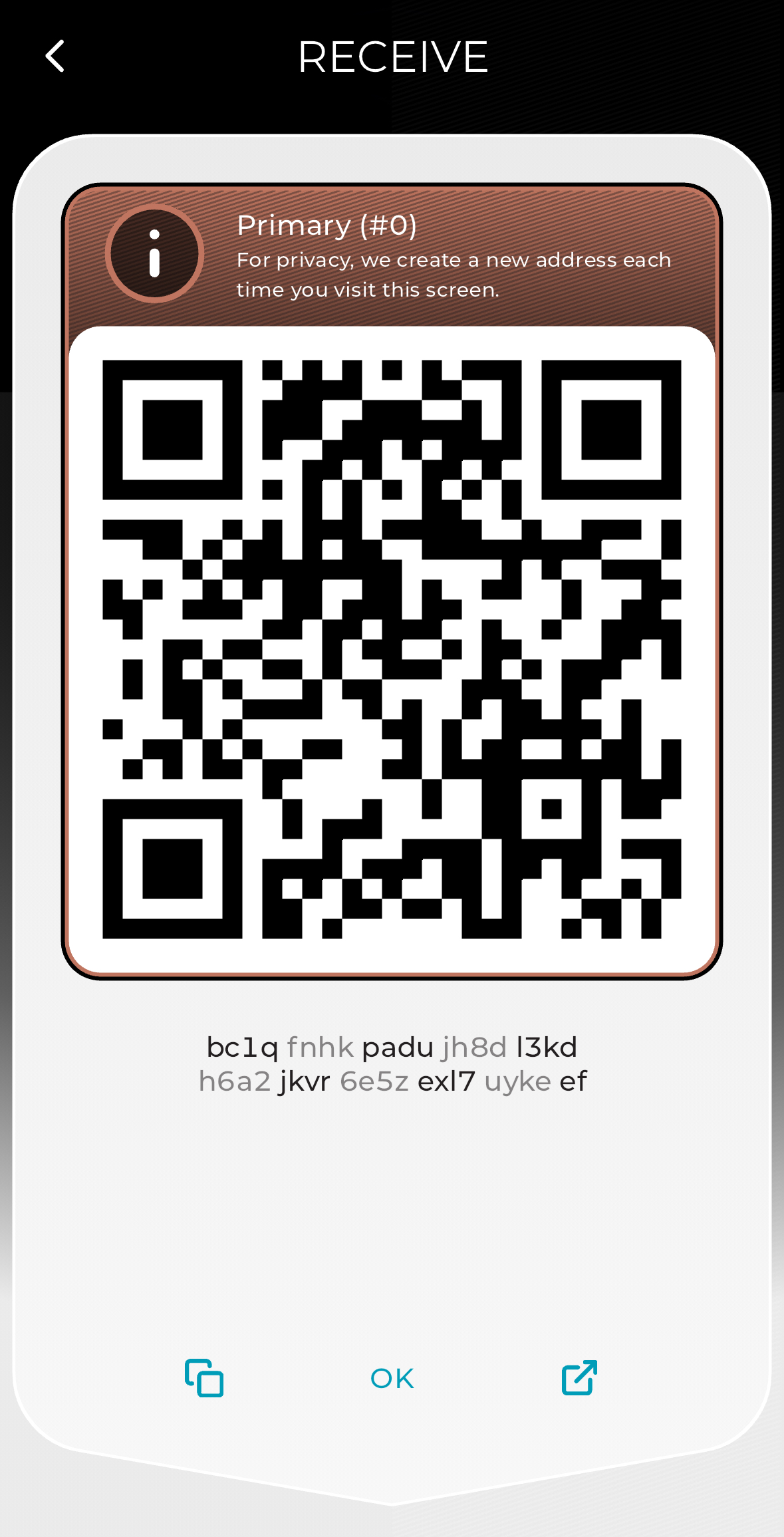What is a Bitcoin Address?
Bitcoin addresses act as destinations on the blockchain where users can send and receive bitcoin. These addresses are central to how the Bitcoin network operates: Every transaction passes through an address, and all bitcoin “lives” at these addresses.
For new users, addresses might initially seem complex. However, once you understand their purpose and functionality, transacting with bitcoin becomes second nature. This guide breaks down what Bitcoin addresses are, how they’re created and used, the different types, and best practices for managing them.
What are Bitcoin Addresses?
A Bitcoin address is a string of alphanumeric characters that acts as a destination for transactions. These addresses are derived from a user’s public key and are designed to be more shareable and user-friendly than the full-length key itself. Bitcoin wallets handle the creation and management of these addresses, making them a seamless part of interacting with the network.
Why does Bitcoin use Addresses?
Bitcoin’s address-based system offers enhanced privacy and security compared to traditional account-based systems. Here’s how:
- Privacy: You can generate unlimited Bitcoin addresses. By using a new address for each transaction, Bitcoin makes it harder for anyone to track a user’s transaction history.
- Decentralized Validation: Bitcoin addresses store unspent transaction outputs (UTXOs), representing the funds they hold. Network nodes use these UTXOs to quickly validate transactions, without needing to comb through the entire blockchain. Think of Bitcoin addresses as secure lockboxes, UTXOs as coins inside, and private keys as the keys to access the funds. When you send bitcoin, you’re transferring coins from one lockbox to another, using the private key to unlock your own box.
How are Bitcoin Addresses created?
Creating a Bitcoin address is simple and handled entirely by wallet software:
- Download a Wallet: Choose a reputable Bitcoin wallet application for your device. For Example BlueWallet.
- Generate Addresses: Navigate to the “receive” section within the wallet interface. This will display a new address as both a text string and a QR code for convenience.
- Use a new Address for each Transaction: Wallets can generate billions of unique addresses, helping maintain user privacy. Good Wallets show you an unused address when you click on “Recieve”.
Examples of Address Generation
Mobile Wallets (e.g., BlueWallet or Blockstream Green Wallet): After logging in, tap the “receive” button to generate an address. Each tap produces a new, unique address for receiving funds.
Desktop Wallets (e.g., Sparrow Wallet or Electrum): Navigate to the “receive” tab to find the current address and options for generating additional ones. Sparrow lists previously used addresses for reference.
Hardware Wallets (e.g., Bitbox or Foundation Passport): Select “receive” on the home screen. A pop-up displays a Bitcoin address for you to copy it. To make sure you’re computer isn’t infected with a virus, doublecheck the address on your Hardware Wallet!

A Bitcoin receiving address from Envoy (Foundation Passport)
Types of Bitcoin Addresses
Bitcoin addresses evolve as the network improves. Here are the main types:
-
Pay-to-Public-Key-Hash (P2PKH): These addresses start with “1” and represent an older format. Example:
1A1zP1eP5QGefi2DMPTfTL5SLmv7DivfNa -
Pay-to-Script-Hash (P2SH): Starting with “3,” these addresses support more complex scripts like multisignature wallets. Example:
3QJmnhn64FQ6Y38P1R6HvDFCBdZwA7M97L -
SegWit (P2WPKH): Starting with “bc1q,” these modern addresses offer lower transaction fees and better scalability. Example:
bc1qw4lsk20h4lrxgfwkc9zqkx8dsr7yvmhcdq5w09 -
Taproot (P2TR): These begin with “bc1p” and leverage the latest Bitcoin upgrade for enhanced privacy and efficiency. Example:
bc1plmk8hwv2fjt2v6szn5qpy3zrlqz92q5f4l4ddt
Security of Bitcoin Addresses
Bitcoin addresses are designed to ensure security and prevent accidental duplication:
- Virtually Zero Chance of Collision: The probability of two users generating the same address is so unlikely that it can be seen as impossible.
- Built-in Error Checking: Addresses include a checksum to detect typos, preventing transactions from being sent to invalid addresses.
- Old Addresses Remain Valid: While using new addresses is best practice, previously used addresses can still receive funds. Addresses are the user-friendly face of Bitcoin’s public key system. Wallets generate and manage these addresses, ensuring users can send and receive bitcoin securely. As long as users control their private keys, they control their addresses and funds.
FAQ
Can someone else generate the same address as mine? Technically possible, but with odds so low it’s practically impossible.
What happens if I make a typo? Most wallets detect invalid addresses due to the checksum feature. However, if the typo results in a valid address, the funds are lost.
Can I reuse an old address? Yes, but it’s not recommended as it compromises privacy.
Final Thoughts
- Bitcoin addresses are unique destinations on the blockchain for sending and receiving funds
- Wallets generate addresses, often they ensure user privacy by creating new ones for each transaction
- Different address formats correspond to network upgrades and specific use cases

